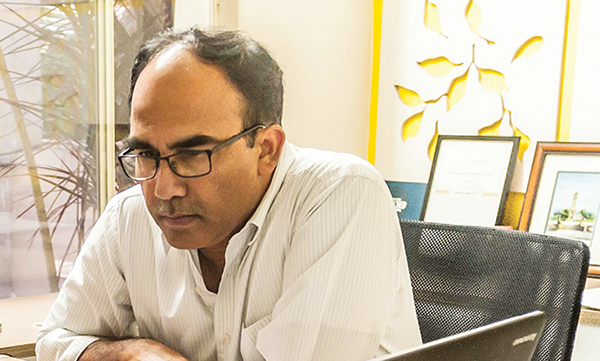As the demand for healthy food rises in India, organic farming is experiencing a surge. The central and several state governments are supporting organic farming. According to a recent report, organic foods market in India is estimated to be over $0.50 billion. It is further projected to treble in the upcoming years, reaching up to $1.36 billion 2020. Overall, the organic foods segment in the country witnessed an estimated growth of 25 to 30%.

Balasubramanyam, CEO, Sresta Natural Bio products, spoke to BE’s Ankita Chakraborty on the significance of organic farming.
Q. What are the entrepreneurial opportunities in the sector of organic farming?
A. Organic farming is a natural entrepreneurial opportunity. If farmers have land assets and are aware of the connection between livestock and farming dynamics, they can successfully initiate organic farming. In our experience, it takes about three to five years for the land to be prepared for organic farming. Once that is done, investments come down as the
creation of natural inputs becomes routine and affordable. We are at present associated with 46000 farmers cultivating across 225000 acres in five states of India.
Q. How is organic farming changing the dynamics of agriculture in India?
A. Organic farming adopts natural techniques and methods which include soil preparation. The dynamics of farming is undergoing rapid changes as the reliance on pesticides and other commercial farming inputs are driving many agriculturists to indebtedness.
With organic farming, the farmer uses his own resources to enrich the farm. Manure, natural insecticides, vermicomposting, traditional cultivation techniques come in handy. In fact, farmers who are deep into organic farming rely on their own seed stock.
Q. Is urban India embracing healthy options including organic food products?
A. Urban India is ridden with the anxiety of consuming adulterated and pesticide-ridden food. Organic farming ensures cultivation of pure food stock with no chemical pesticides and no GMOs. This is what is appealing to a growing section of the urban population. Additionally, purity and health is best preserved when the food is brought directly from the farm.
Q. How is organic farming contributing to healthy living?
A. Farming and rural indebtedness have a strong linkage. In conventional farming, farmers often need to borrow money to buy seeds, fertilisers and chemicals. In organic farming, the livestock refuse provides for natural manure. These traditional techniques are more about adoption of proven methods and less about seeking capital to fund farming.
Q. How are Indian entrepreneurs in organic farming empowering farming communities?
A. Farming communities have three key needs, namely, low cost inputs, assured market or purchase, and the sustainability of their families. Low cost is addressed through traditional farming methods. Assured purchase is a commitment that we make to farmer groups who adopt to our strict norms of global compliance. Payments are made directly and deposited in the bank accounts of small and marginal farmers. Such practices have helped in removing the middlemen and ensured steady incomes for farmers.
Q. Where is India placed in the global organic farming market?
A. Across the world, the figures stand at around 50.9 million hectares of organic agricultural land. The global organic market is of around $80 billion. India, however, is a nascent organic food market. The estimated size of the market is approximately $0.50 billion.
Q. What are the challenges faced by Indian entrepreneurs in organic farming?
A. Lack of government support, inherent reservation of farmers against converting inorganic land into organic land, the absence of globally recognised advice and sustained guidance are some of the major problems. It takes three years to convert a farmland from inorganic to organic. In the first two years, farmers need a lot of support. Third year onwards, things ease out. Another crucial factor is the prevalence of brands that pass themselves as organic without implementing the due diligence and compliance standards.
Q. Organic food is known to be expensive. What should be done to make it more affordable?
A. Greater government and media support in highlighting the ill effects of consuming food with pesticides and adulteration can enhance the market of organic products. Different segments of experts like nutritionists, doctors and individuals from the food blogging community need to promote organic food. Better cold chain and storage facilities, subsidies on livestock purchase and more priority on the organic sector can improve things.
Add new comment